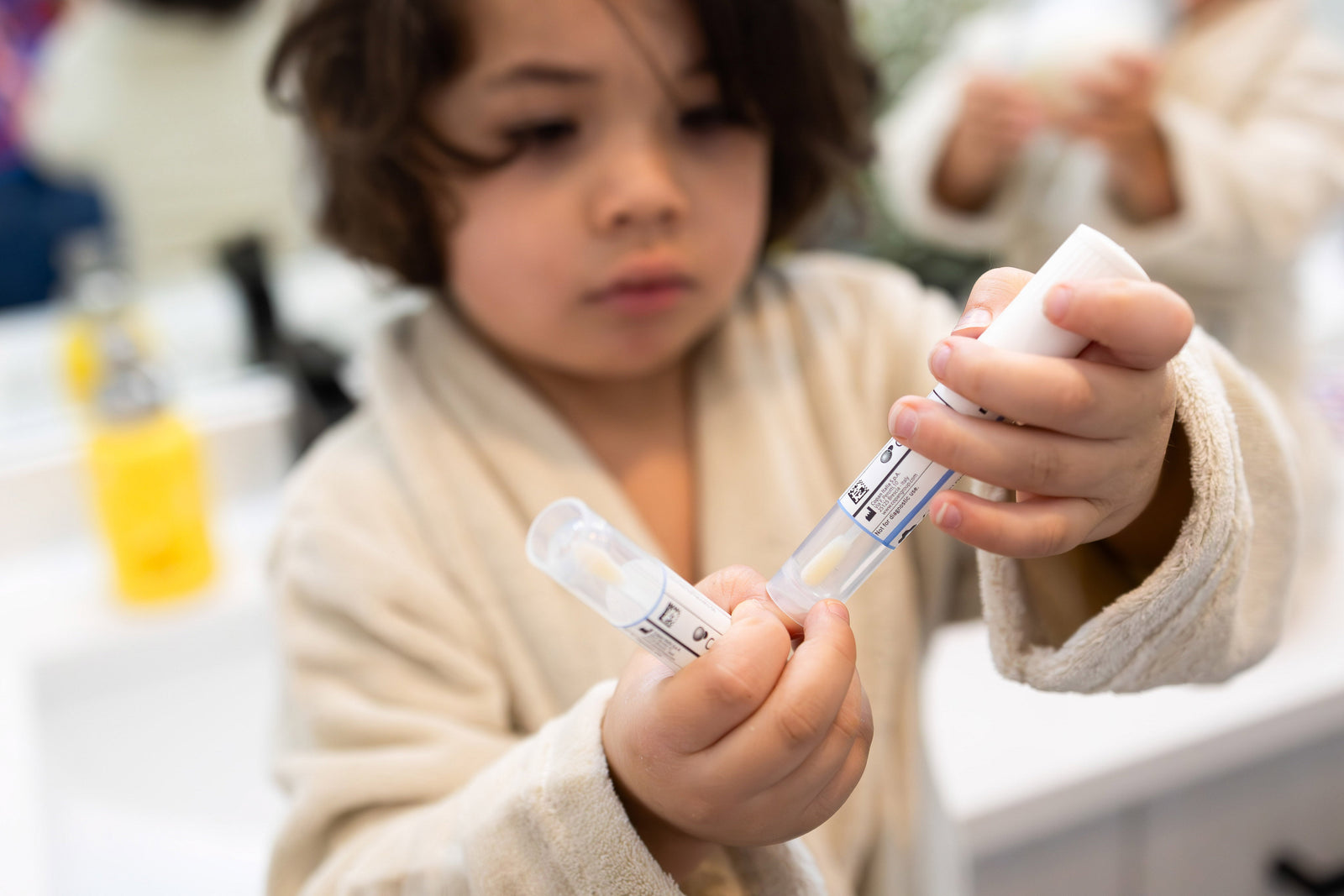Your Cart is Empty
Continue shoppingHere's What Can Happen When Your Kid Stops Taking Prebiotics
Medically Reviewed by May Zhu, RDN | Published January 16, 2025
share this article
 Prebiotics play a crucial role in maintaining a healthy gut microbiome, particularly in kids.
Prebiotics play a crucial role in maintaining a healthy gut microbiome, particularly in kids.
These non-digestible fibers feed beneficial gut bacteria, supporting digestion, nutrient absorption, and overall health.
But what happens when your kid stops taking prebiotics? The effects can range from mild discomfort to long-term health challenges, depending on their diet and lifestyle.
1. Disrupted Gut Microbiome
When prebiotics are removed from your kid’s diet, their gut microbiome may become less diverse.
Studies show that prebiotics, like inulin and oligosaccharides, stimulate the growth of beneficial bacteria such as Bifidobacteria and Lactobacilli.
Without this fuel, the population of these “good bacteria” can decline, leaving room for harmful bacteria to overpopulate.
This imbalance, known as dysbiosis, can lead to issues like bloating, irregular bowel movements, and increased susceptibility to infections.
2. Constipation and Digestive Discomfort
Prebiotics are vital for keeping bowel movements regular.
They work by drawing water into the intestines and promoting stool softness.
If your kid stops consuming prebiotics, they may experience constipation or harder stools.
This is particularly common in kids who already struggle to meet their daily fiber intake, as most kids consume only about 13 grams of fiber daily, far below the recommended amount.
3. Weakened Immune System
Approximately 70% of the immune system resides in the gut.
Prebiotics help nourish the bacteria that regulate immune responses and reduce inflammation.
Without them, the gut’s ability to support a strong immune system diminishes, leaving your kiddo more vulnerable to colds, flu, and other illnesses.
4. Mood and Cognitive Impact
Emerging research highlights the gut-brain connection, demonstrating how gut health affects mood and cognition.
Prebiotics, such as galactooligosaccharides (GOS), have been linked to reduced stress and anxiety in kids. If prebiotic intake stops, your kid may experience mood swings, difficulty concentrating, or increased irritability.
5. Compromised Long-Term Health
Long-term neglect of prebiotics can lead to chronic issues, including obesity, diabetes, and inflammatory bowel disease.
These conditions are linked to an imbalanced microbiome, highlighting the importance of prebiotics in a balanced diet for maintaining lifelong health.
What Parents Can Do
If your kid has stopped taking prebiotics, it’s not too late to reintroduce them.
Encourage a fiber-rich diet with foods like bananas, carrots, and kiwis or consider a high-quality prebiotic supplement like Growing Up Prebiotics.
Growing Up Prebiotics delivers 3g of prebiotic fiber per serving in a tasteless, textureless, and easy to mix powder packet. Designed specifically for kids and helps even the pickiest of eaters meet their daily fiber needs.
A gradual reintroduction can help avoid digestive discomfort while restoring gut health.
Summary
Removing prebiotics from your kid’s diet can lead to gut microbiome imbalance, digestive discomfort, weakened immunity, and long-term health challenges.
Reinforcing a prebiotic-rich diet through Whole Foods and prebiotic supplements for kids such as Growing Up Prebiotics ensures their gut remains a strong foundation for overall well-being.

Author
May Zhu, RDN
Trending

Oxalates and Kids' Digestion: How High-Oxalate Foods Contribute to Constipation and Gut Discomfort
read now
5 Signs Your Toddler Needs a Poop Test
read now
Toddler Poop Issues: What Different Poop Colors Mean and When to Worry
read now






